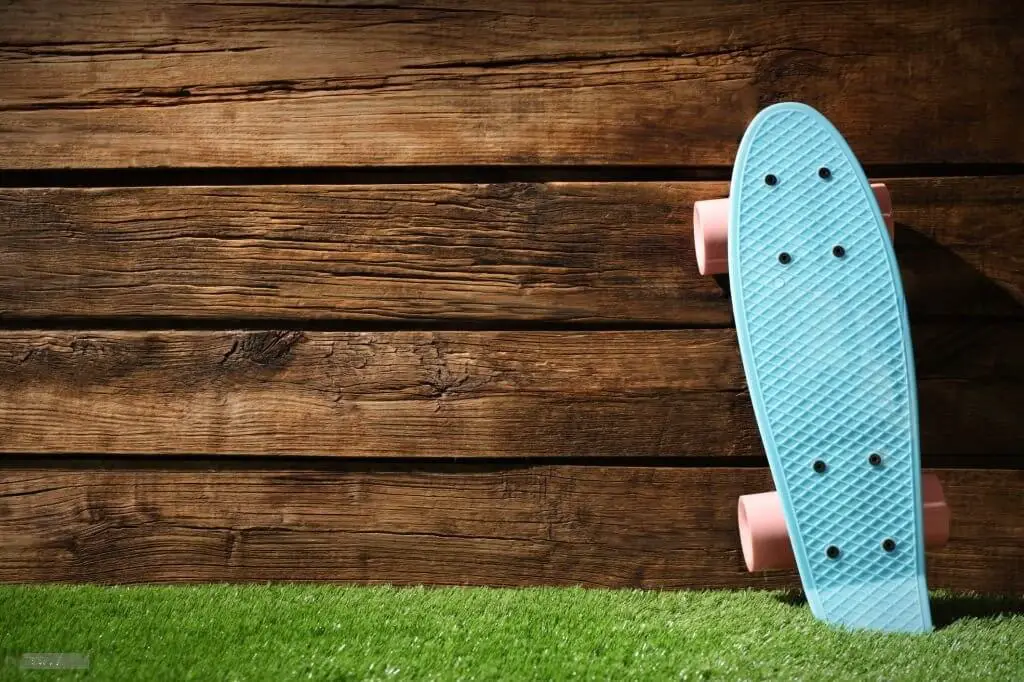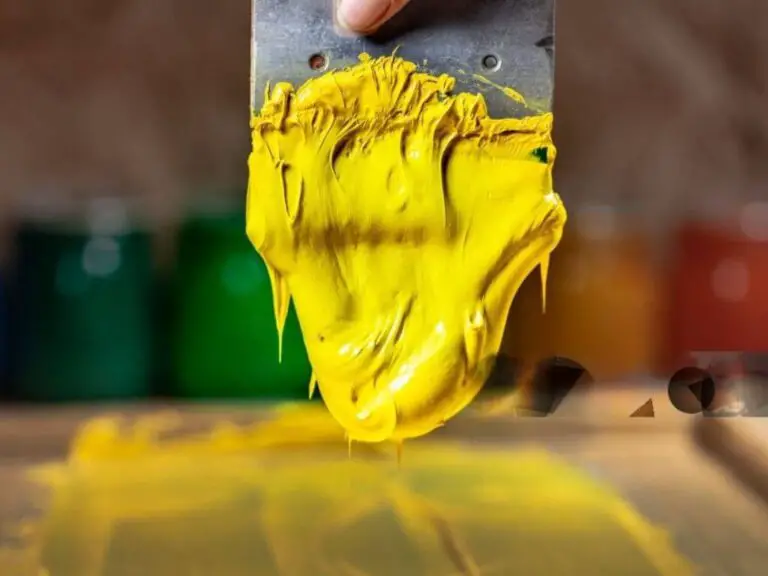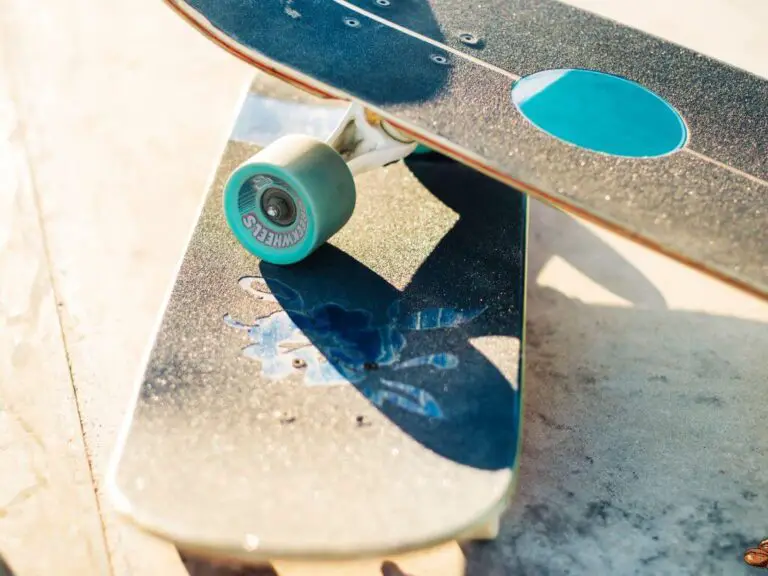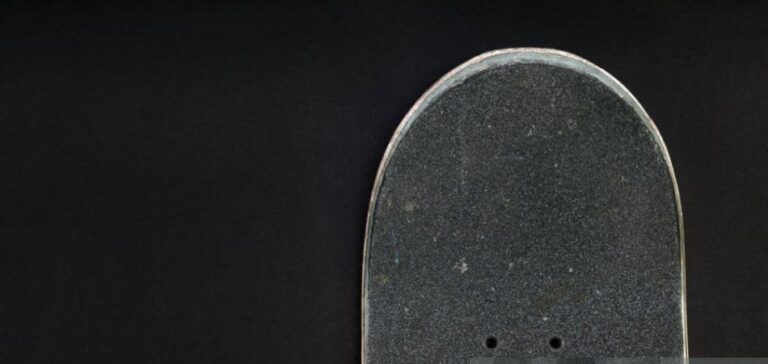When it comes to skateboarding, every ounce matters. Whether you’re grinding rails, flipping tricks, or cruising through the streets, the weight of your skateboard deck can make or break your performance. That’s why finding the lightest skateboard deck is a game-changer for skaters of all levels. A lighter deck not only enhances your agility and control but also reduces fatigue, allowing you to skate longer and push your limits further.
In this blog post, we’ll dive into the world of ultra-light skateboard decks, exploring the materials, designs, and brands that are revolutionizing the industry. From carbon fiber innovations to advanced wood composites, we’ll uncover what makes these decks stand out and how they can elevate your skating experience. If you’re on the hunt for the lightest skateboard deck to boost your performance, you’re in the right place.
Let’s roll into the details and find the perfect deck to match your style and skills!
Types of Lightweight Skateboard Decks
There are four main types of lightweight skateboard decks: carbon fiber, hybrid, resin, and poplar.
Carbon fiber decks are the lightest and most expensive type of skateboard deck. They are also the strongest and most durable, making them a good choice for professional skaters. Carbon fiber decks are made from a lightweight and strong composite material that is resistant to impact and wear and tear.
Hybrid decks are made with a combination of materials, such as carbon fiber and maple wood. They are lighter and more durable than traditional maple decks, but they are not as expensive as carbon fiber decks. Hybrid decks are a good option for skaters who want the benefits of a lightweight deck without the high price tag of a carbon fiber deck.
Resin decks are made with a resin that is lighter and more durable than traditional maple wood. They are a good option for budget-minded skaters who want a lightweight deck. Resin decks are not as strong as carbon fiber or hybrid decks, but they are still a good option for beginner and intermediate skaters.
Poplar decks are made with poplar wood, which is a lightweight and affordable wood. They are not as durable as other types of lightweight decks, but they are a good option for beginners. Poplar decks are a good choice for skaters who are just starting out and want a deck that is easy to ride and won’t break the bank.

How Much Should A Skateboard Weight?
Even though there is no established maximum or minimum weight for a skateboard, 2-3 pounds is the industry standard weight of a skateboard. This is the board’s weight without any trucks, wheels, gears, or grip tape attached. The overall weight, including the wheels, trucks, and bearings, is between 7 and 10 pounds.
Depending on whether it is designed for transportation, cruising, or racing downhill, the weight of a longboard deck may vary anywhere from 8 to 11 pounds. On the contrary, an electric skateboard, also known as an e-board, may weigh in at over 25 pounds owing to its battery and electric motor.
Here’s a chart showing the average weight range for different types of skateboard decks:
| Deck Type | Weight Range |
|---|---|
| Maple Wood | 2.5 – 3.5 lbs (1134 – 1587 g) |
| Bamboo | 2.5 – 3.5 lbs (1134 – 1587 g) |
| Carbon Fiber | 1.5 – 2.5 lbs (680 – 1134 g) |
| Fiberglass | 2.0 – 3.0 lbs (907 – 1361 g) |
| Aluminum | 3.0 – 5.0 lbs (1361 – 2268 g) |
What is The Lightest Skateboard deck?
Many people lose up on skating, not only because it’s difficult, but because they chose the wrong skate deck for the task. Whether you need a deck for adults or kids, for cruising or tricky skating, don’t get overwhelmed finding what are the lightest skateboards. Here are the top brands of decks that are lightweight.
| Brand | Skateboard Weight (kg) | Skateboard Weight (lbs) |
|---|---|---|
| Element | 1.36 kg | 3.0 lbs |
| Baker | 1.36 kg | 3.0 lbs |
| Plan B | 1.27 kg | 2.8 lbs |
| Girl | 1.36 kg | 3.0 lbs |
| Zero | 1.27 kg | 2.8 lbs |
| Enjoi | 1.36 kg | 3.0 lbs |
| Almost | 1.27 kg | 2.8 lbs |
| Creature | 1.36 kg | 3.0 lbs |
| Santa Cruz | 1.27 kg | 2.8 lbs |
| Powell Peralta | 1.27 kg | 2.8 lbs |
Please keep in mind that these weights are approximate and can vary depending on the specific model and size of the skateboard deck.
Does Skateboard Weight Matter?
The weight of a skateboard can matter for a number of factors, including:
- Maneuverability: A lighter skateboard will be easier to maneuver, especially for flip tricks and other technical tricks. This is because a lighter board will require less force to accelerate and change direction.
- Speed: A lighter skateboard will also be faster than a heavier skateboard, all else being equal. This is because a lighter board will have less inertia, which is the resistance of an object to change its motion.
- Durability: A heavier skateboard will be more durable than a lighter skateboard. This is because a heavier board will be less likely to break when it falls or hits something.
- Comfort: A heavier skateboard may be more comfortable to ride for some people, especially for those who are heavier. This is because a heavier board will absorb more shock from the road.
Ultimately, the weight of a skateboard is a personal preference. Some people prefer a lighter board for its maneuverability and speed, while others prefer a heavier board for its durability and comfort.
Some additional things to consider when choosing a skateboard weight:
- Your weight: If you are heavier, you may want to choose a heavier skateboard for durability.
- Your skill level: If you are a beginner, you may want to choose a lighter skateboard for its maneuverability.
- The type of skating you do: If you do a lot of technical tricks, you may want to choose a lighter skateboard. If you do a lot of downhill skating, you may want to choose a heavier skateboard for stability.
It is also important to note that the weight of the skateboard is not the only factor that affects its performance. Other factors, such as the size and shape of the board, the type of trucks and wheels, and the way the board is set up, can also affect its maneuverability, speed, and durability.
Factors Affecting Skateboard Deck Weight
One important factor to consider when choosing a skateboard is its weight. Several factors can affect a skateboard deck’s weight, including the materials used, the construction method, and the board’s shape and size.
- Material: The material used to make the deck is the biggest factor affecting its weight. Maple is the most common material used for skateboard decks, and it is also the heaviest. Bamboo is a lighter material that is becoming increasingly popular for skateboard decks. Other materials that are sometimes used for skateboard decks include carbon fiber, fiberglass, and plastic.
- Number of plies: The number of plies in a skateboard deck also affects its weight. A deck with more plies will be stronger and more durable, but it will also be heavier. Most skateboard decks have 7 or 8 plies, but some decks have as many as 11 plies.
- Thickness: The thickness of the deck also affects its weight. A thicker deck will be stronger and more durable, but it will also be heavier. Most skateboard decks are 7/8″ thick, but some decks are 1″ thick or more.
- Shape: The shape of the deck can also affect its weight. A deck with a lot of curves will be heavier than a deck with a simpler shape. This is because the curves require more material to be used.
- Finish: The finish on the deck can also affect its weight. A deck with a glossy finish will be heavier than a deck with a matte finish. This is because the glossy finish requires more material to be used.
In general, a lighter skateboard deck will be easier to maneuver and faster. However, a heavier skateboard deck will be more durable and comfortable to ride. Ultimately, the best weight for a skateboard deck is a personal preference
Comparison of Lightest Skateboard Decks
What Is The Lightest Skateboard Deck? When it comes to choosing the lightest skateboard deck, there are several materials available on the market, each with its own unique advantages and disadvantages. Here’s a comparison of some of the most popular materials used for skateboard decks:
- A. Maple Wood Decks: Maple wood remains the most popular material for skateboard decks due to its strength, durability, and affordability. Maple wood decks offer excellent pop, responsiveness, and stability, making them ideal for street and park skating.
- B. Bamboo Decks: Bamboo decks have become increasingly popular due to their lightweight and eco-friendly properties. Bamboo is more flexible than maple wood, offering a smoother ride and better shock absorption. They are a great option for cruising and transportation.
- C. Carbon Fiber Decks: Carbon fiber decks are extremely light
weight and strong, offering exceptional pop and a smooth ride. They are ideal for advanced skaters who want a high-performance deck, but they tend to be expensive. - D. Fiberglass Decks: Fiberglass decks are made by combining layers of fiberglass cloth and epoxy resin. They are lighter and more flexible than traditional maple wood decks, but also tend to be more expensive.
- E. Aluminum Decks: Aluminum decks are the lightest material used for skateboard decks. They offer unparalleled smoothness and are ideal for cruising and transportation. However, they may not provide as much pop as other materials.
Ultimately, the choice of material for a skateboard deck depends on individual preferences, intended use, and budget. Each material offers its own unique advantages and drawbacks, and it’s up to the skater to determine which material is the best fit for their needs.
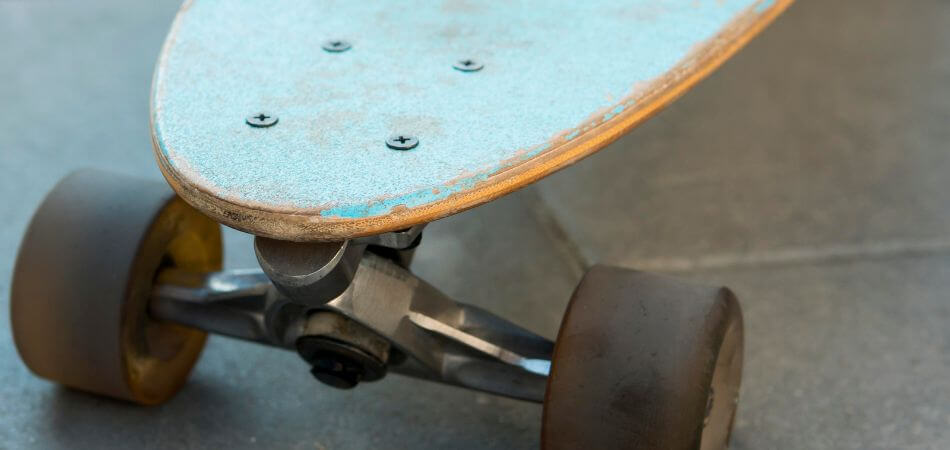
Benefits of Lightweight Skateboard Decks
Skateboard decks come in a variety of weights, and the weight of your deck can have a big impact on your skating. Lightweight decks offer a number of benefits over heavier decks, including:
- Easier to flip and pop: Lightweight decks are easier to flip and pop than heavier decks. This is because they require less force to move. This is especially beneficial for beginners and riders who are learning new tricks.
- More control and maneuverability: Lightweight decks give the rider more control and maneuverability. This is because they are easier to turn and move around. This is especially beneficial for experienced riders who are performing complex tricks.
- Less fatigue: Lightweight decks reduce fatigue. This is because they require less energy to move. This is especially beneficial for riders who are skating long distances or for extended periods of time.
- Increased speed: Lightweight decks can help riders to increase their speed. This is because they are less resistant to the air. This is especially beneficial for riders who are racing or skating downhill.
To these benefits, lightweight decks are also often more durable than heavier decks. This is because they are made from stronger materials that are less likely to break.
If you are looking for a skateboard deck that will give you the best possible performance, then a lightweight deck is the way to go. Lightweight decks are ideal for riders of all skill levels, from beginners to professionals.
What Skateboard Trucks Are Light?
Trucks are the most crucial component of a skateboard since they are the most durable, the heaviest (at around 350 grams each), and the strongest. These are the pieces of hardware attached below the deck, together with the wheels. They play the role to bear the weight of both skater and skateboard.
So, what are the lightest trucks? After research, here is the chart of the best lightest skateboard truck by weight.
| Brand | Truck Weight (kg) | Truck Weight (lbs) |
|---|---|---|
| Independent | 0.38 – 0.42 kg | 0.85 – 0.93 lbs |
| Thunder | 0.38 – 0.42 kg | 0.85 – 0.93 lbs |
| Venture | 0.37 – 0.41 kg | 0.82 – 0.91 lbs |
| Krux | 0.39 – 0.43 kg | 0.86 – 0.95 lbs |
| Tensor | 0.35 – 0.39 kg | 0.77 – 0.86 lbs |
| Bullet | 0.36 – 0.40 kg | 0.80 – 0.88 lbs |
| Royal | 0.37 – 0.41 kg | 0.82 – 0.91 lbs |
| Silver | 0.38 – 0.42 kg | 0.85 – 0.93 lbs |
| Gullwing | 0.40 – 0.44 kg | 0.88 – 0.97 lbs |
| Paris | 0.40 – 0.44 kg | 0.88 – 0.97 lbs |
Please keep in mind that these weights are approximate and can vary slightly based on the specific model and size of the skateboard trucks.
Pros and Cons of Lightweight Skateboard Trucks
Let’s see the benefits of lightweight skateboard trucks some of the pros and cons of lightweight skateboard trucks to help you decide if they are right for you:
Pros:
- Lightweight trucks are easier to carry around. This can be a major advantage if you are commuting to work or school on your skateboard, or if you simply want to be able to take your skateboard with you on trips.
- Lightweight trucks are easier to flip and spin. This can make them a good choice for skaters who are interested in learning tricks.
- Lightweight trucks can be faster. This is because they have less mass to move, which means they can accelerate more quickly.
- Lightweight trucks can be more maneuverable. This is because they are easier to turn and control.
Cons:
- Lightweight trucks can be less durable. This is because they are often made with thinner materials in order to reduce weight.
- Lightweight trucks can be more expensive. This is because they require more specialized manufacturing techniques.
- Lightweight trucks may not be ideal for all types of skating. For example, they may not be the best choice for skating on rough terrain or for downhill skating.
Ultimately, the decision of whether or not to use lightweight skateboard trucks is a personal one.
Pros and Cons of Lightweight Skateboard
Lightweight skateboards have become increasingly popular in recent years, thanks to their many advantages. Here are some of the pros and cons of lightweight skateboards to help you decide if they are right for you:
Pros:
- Lightweight skateboards are easier to carry around. This can be a major advantage if you are commuting to work or school on your skateboard, or if you simply want to be able to take your skateboard with you on trips.
- Lightweight skateboards are easier to flip and spin. This can make them a good choice for skaters who are interested in learning tricks.
- Lightweight skateboards can be faster. This is because they have less mass to move, which means they can accelerate more quickly.
- Lightweight skateboards can be more maneuverable. This is because they are easier to turn and control.
Cons:
- Lightweight skateboards can be less durable. This is because they are often made with thinner materials in order to reduce weight.
- Lightweight skateboards can be more expensive. This is because they require more specialized manufacturing techniques.
- Lightweight skateboards may not be ideal for all types of skating. For example, they may not be the best choice for skating on rough terrain or for downhill skating.
Ultimately, the decision of whether or not to use a lightweight skateboard is a personal one. If you are looking for a skateboard that is easy to carry around and that can help you learn tricks, then a lightweight skateboard may be a good choice for you. However, if you are looking for a skateboard that is durable and that can handle rough terrain, then you may want to consider a heavier skateboard.

How Can I Make My Skateboard Lighter?
Making your skateboard lighter could be the key to unlocking your full potential. With a lighter skateboard, you’ll have increased speed, better control, and easier tricks. What Is The Lightest Skateboard Deck? how do you make your skateboard lighter?
Start with a lightweight deck made of materials like bamboo or carbon fiber. Then, upgrade your components to lighter options, like aluminum trucks, urethane wheels, and lightweight bearings. You can even drill holes in your deck to reduce weight without sacrificing balance.
Don’t forget to remove any unnecessary accessories, like grip tape graphics or stickers, to shave off extra weight.
By following these tips, you can find the perfect balance between weight, durability, and performance, and take your skateboarding skills to new heights. So, grab your board and get ready to fly with a lighter, more agile skateboard!
Final Verdict
In conclusion, lightweight skateboard decks are a game-changer in the skateboarding world. They provide several benefits, including increased speed, flexibility, and easier tricks. What Is The Lightest Skateboard Deck? When searching for the lightest skateboard decks, it’s essential to consider factors like durability, performance, and weight. Look for brands that use high-quality materials like carbon fiber and bamboo, which are lightweight and durable.
Whether you’re a beginner or an experienced skateboarder, upgrading to a lightweight deck can take your skills to the next level. So, do your research, compare your options, and find the perfect deck that meets your requirements. By investing in a lightweight skateboard deck, you can enjoy a more enjoyable and rewarding skateboarding experience.
FAQ’s
What is the lightest skate deck?
The lightest skate decks are usually made with carbon fiber or special lightweight wood blends, like Powell-Peralta Flight Decks. They’re strong, thin, and super lightweight for better performance!
Which are the lightest skateboard trucks?
The lightest skateboard trucks are usually made from hollow or titanium materials, like Thunder Hollow Lights and Independent Titanium trucks. They offer a great balance of strength and weight reduction!
How much does the impact light deck weight?
The Impact Light deck weighs around 2.8 to 3.3 lbs (1.3 to 1.5 kg), depending on the size. It’s lightweight yet super strong!
What skateboard is the easiest to ride?
A cruiser or longboard is the easiest to ride, as they offer better stability and smoother turns. They’re perfect for beginners learning to balance and cruise!

